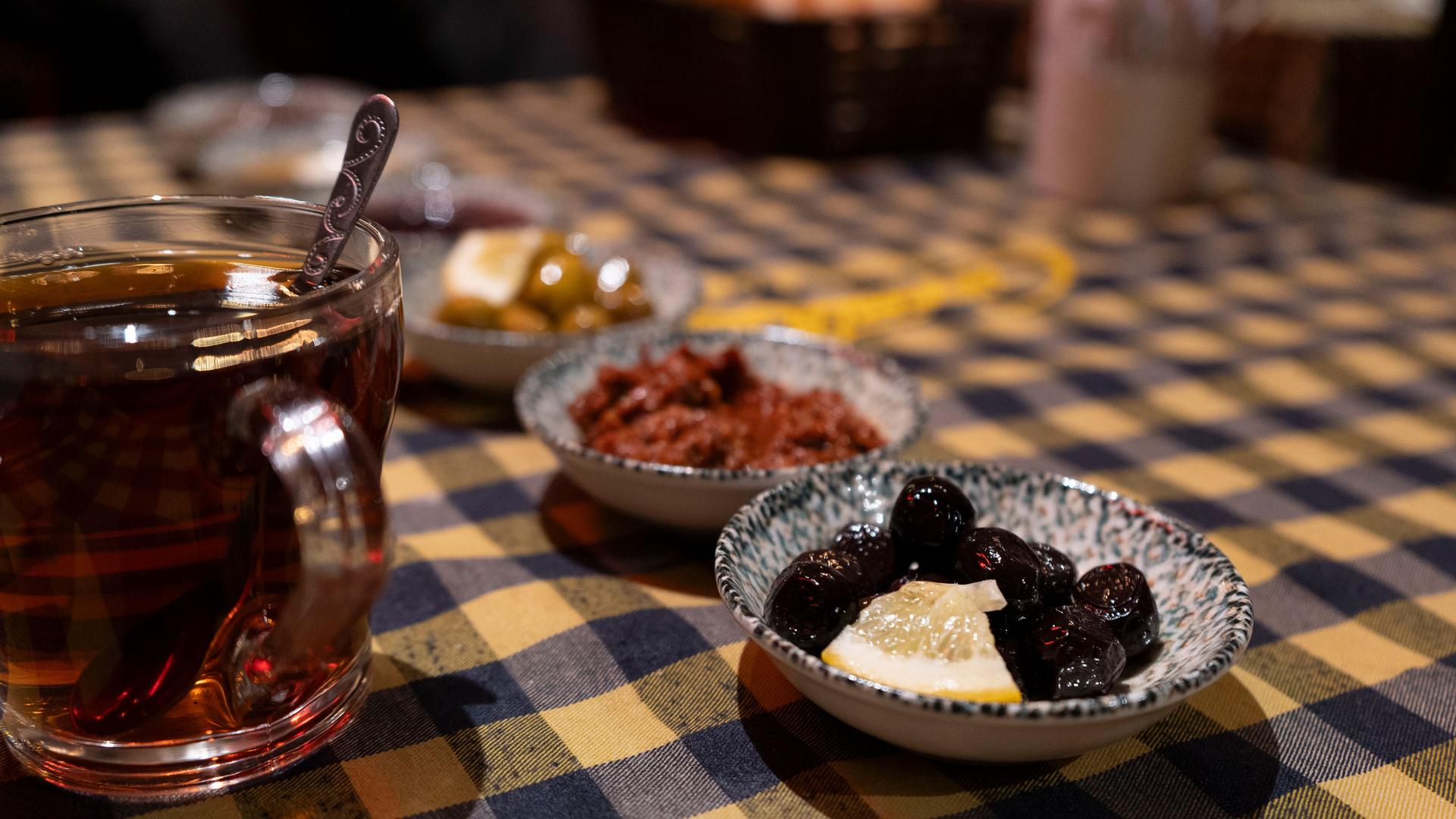Weekend breakfasts in Turkey are an almost sacred event.
In an experience known as the serpme kahvaltı, plates and plates of egg dishes, regional specialties and homemade condiments are enjoyed over the course of an hour or two.
Traditionally served at home, these sumptuous spreads are attracting growing concerns over food waste at restaurants.
“There are a ton of options, and you might not be able to eat them all, but you’ll have at least half — and you’ll like all of them.”
Ferdi Avliği, server, Café Carmenta, Istanbul, Turkey
“There are a ton of options, and you might not be able to eat them all, but you’ll have at least half — and you’ll like all of them,” said Ferdi Avliği, a server at Café Carmenta, a restaurant in central Istanbul.
“Breakfast is mandatory for us.”
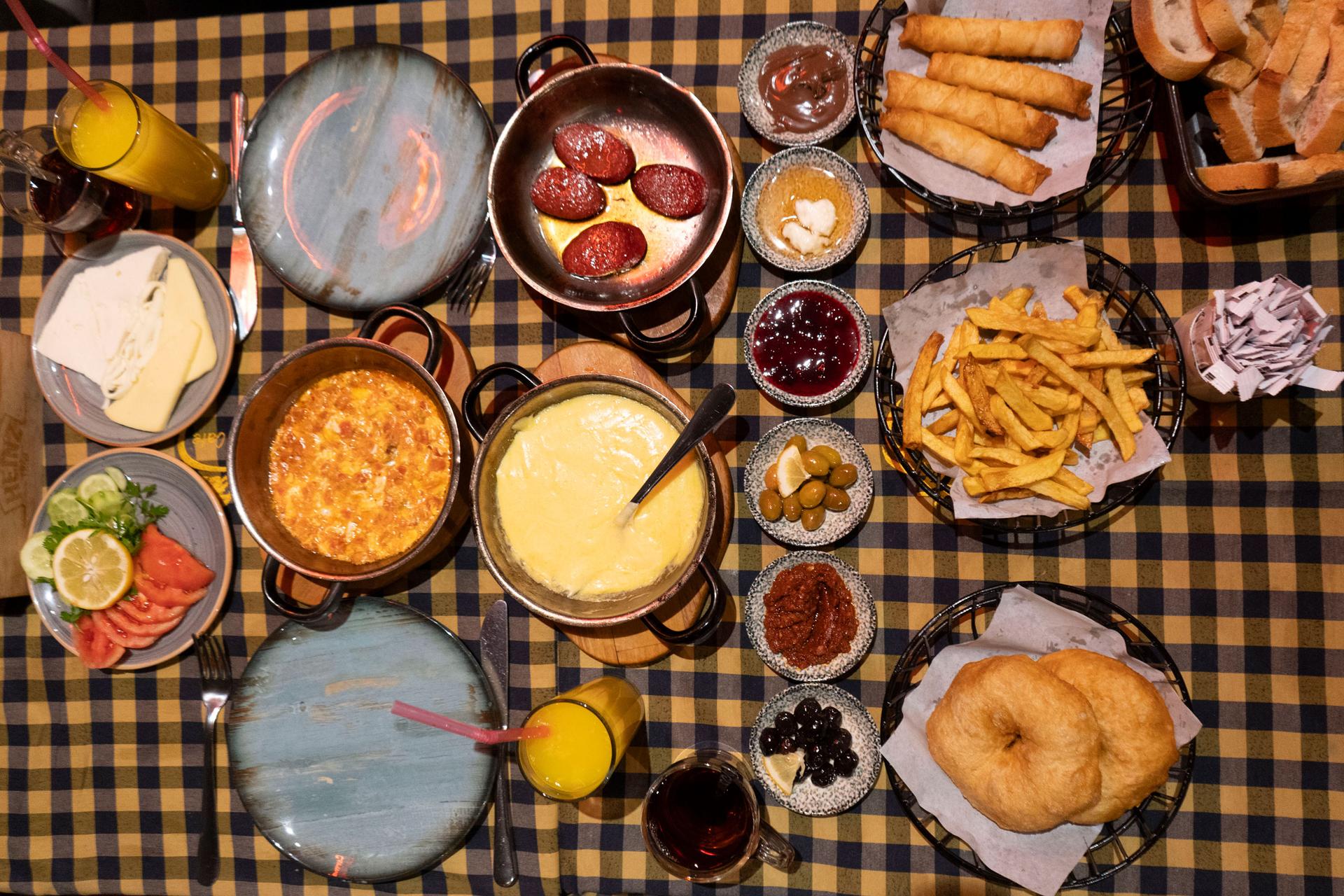
Turkish breakfast is meant to be enjoyed as a bit of this and a bit of that. To the untrained eye, it can seem chaotic — perhaps a metaphor for the frenetic energy of Istanbul itself.
At Café Carmenta, a popular option in Istanbul’s Beşiktaş neighborhood, there are tomatoes and cucumbers, dressed with sprigs of fresh parsley. Eggs, scrambled with tomatoes and peppers. Two types of olives. Feta cheese, soft cheese, string cheese — cheese rolled in phyllo dough and fried. Savory donuts, fried. French fries. Fried sausage. Savory pepper paste, called acuka. Homemade jam. Honey and clotted cream. And to top it all off, a Black Sea specialty of melted cheese and cornmeal, eaten with bread, like fondue.
You’re not expected to eat the whole thing. And that’s kind of the point, said Bahar Yel, who owns Café Carmenta with her husband.
“If you have guests in your home, you try to offer as many options as possible,” Yel said.
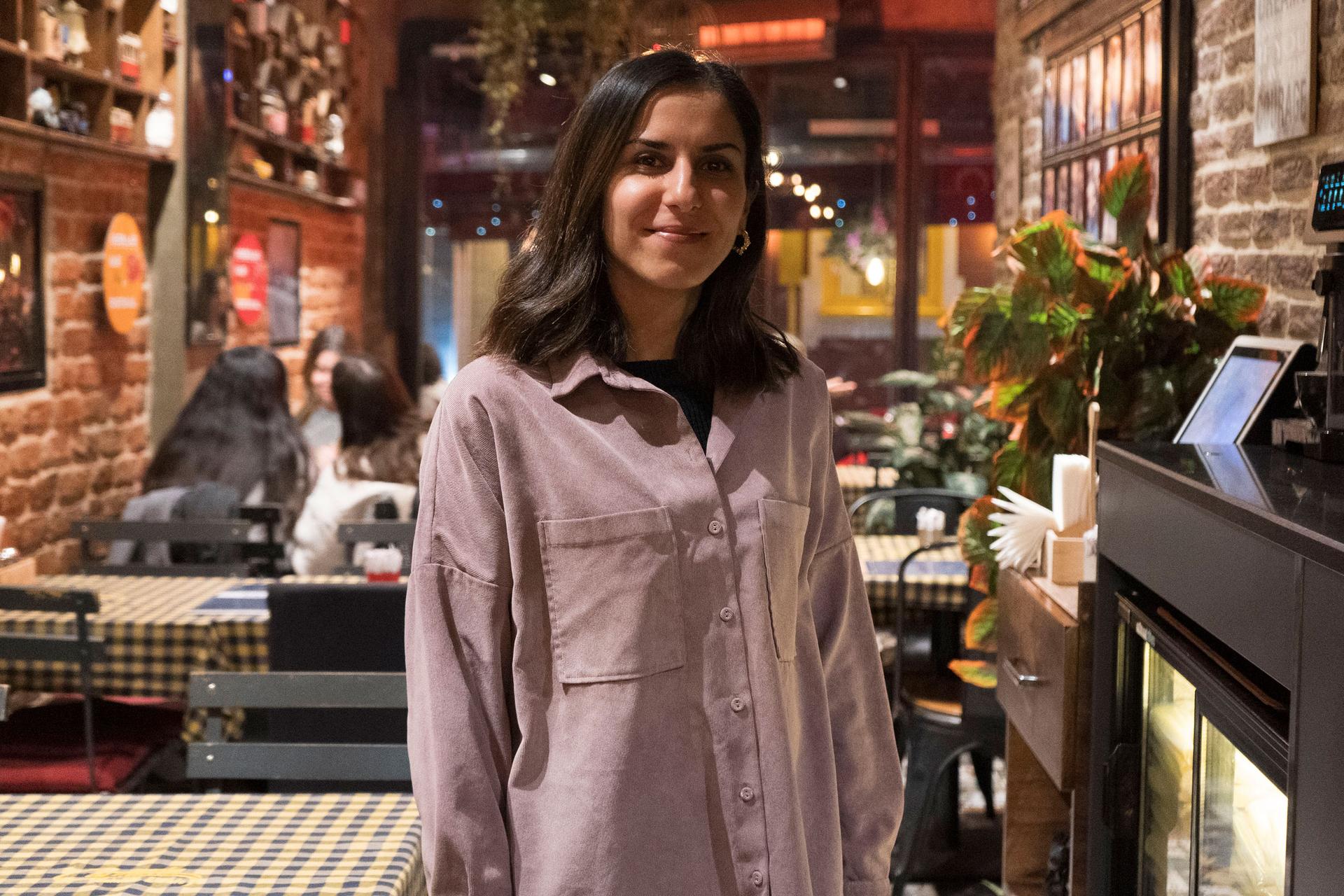
This pressure extends to the restaurant industry.
“It’s part of Turkish culture. The more variety there is, the happier you are.”
Bahar Yel, co-owner, Café Carmenta, Istanbul, Turkey
“It’s part of Turkish culture. The more variety there is, the happier you are,” she explained.
As a restaurant owner, she tries to reduce waste by serving portions based on the size of the group, or suggesting that tables order for fewer people if they aren’t very hungry.
But ban it entirely? Never.
Famously, one historian appeared on the Kanal 7 news channel, calling the full Turkish breakfast “a complete vulgarity.”
This year, a citizen petition to ban Turkish breakfast even made it to the country’s parliament. The country’s restaurant association has jumped on the cause, suggesting that restaurants offer à la carte options, where diners choose and pay only for the dishes they plan to eat.
But Turkish breakfast is also an income generator, and a point of pride. It’s also a small luxury that working people can afford, at least once in a while.
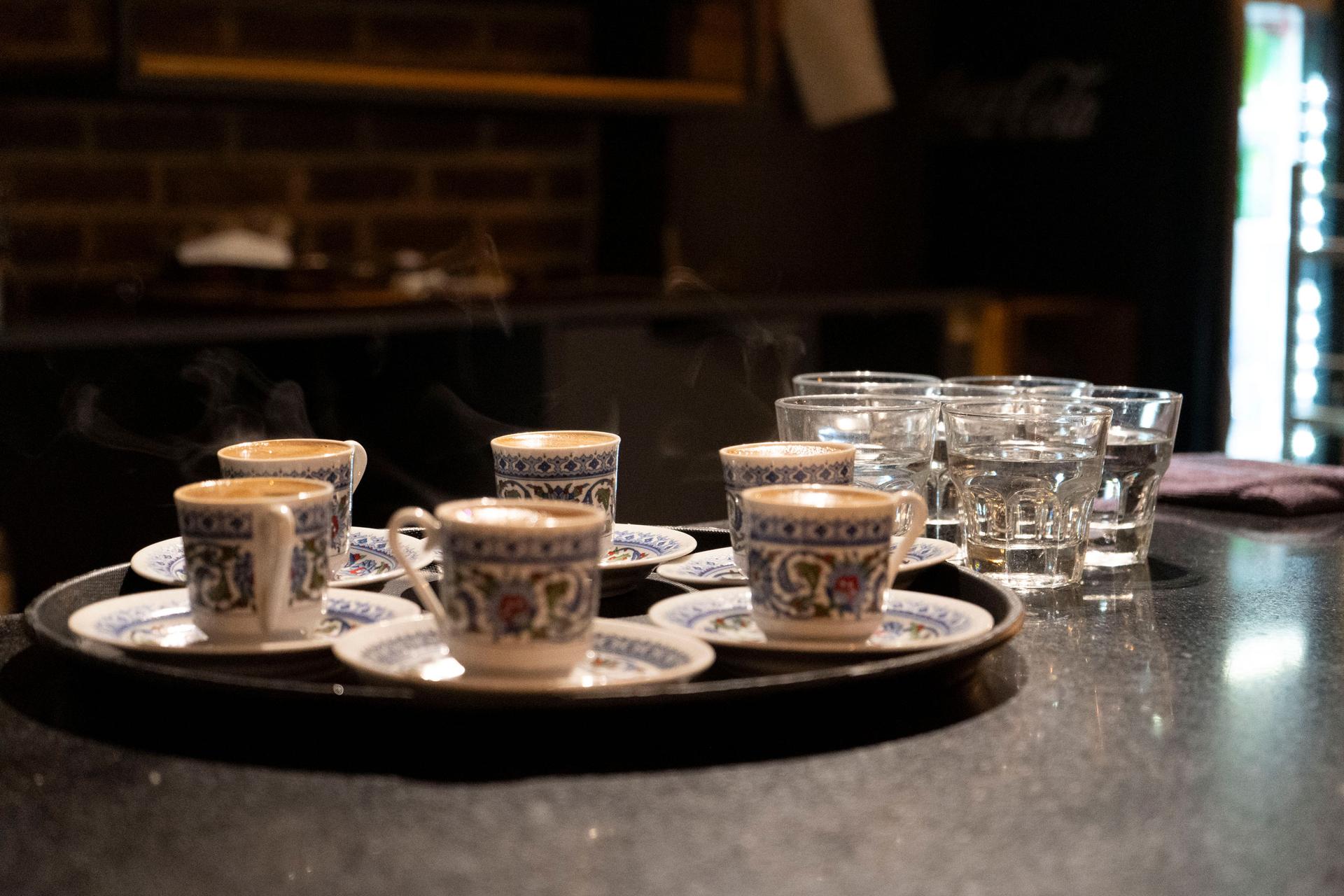
Restaurants do regional twists on a classic table — from the spicy flatbreads of Antakya, to Balkan-style jams and pancakes or even the north Anatolian specialty of hard-boiled eggs, refried with olive oil, thyme and hot pepper.
In Istanbul’s central Beşiktaş neighborhood, there is an entire street devoted to breakfast: Çelebi Oğlu Sokak.
Here, diners sit at outdoor cafes with magnificent breakfast spreads. Restaurants compete with each other for the most elaborate, the most unique or simply the most Instagrammable take on old favorites.
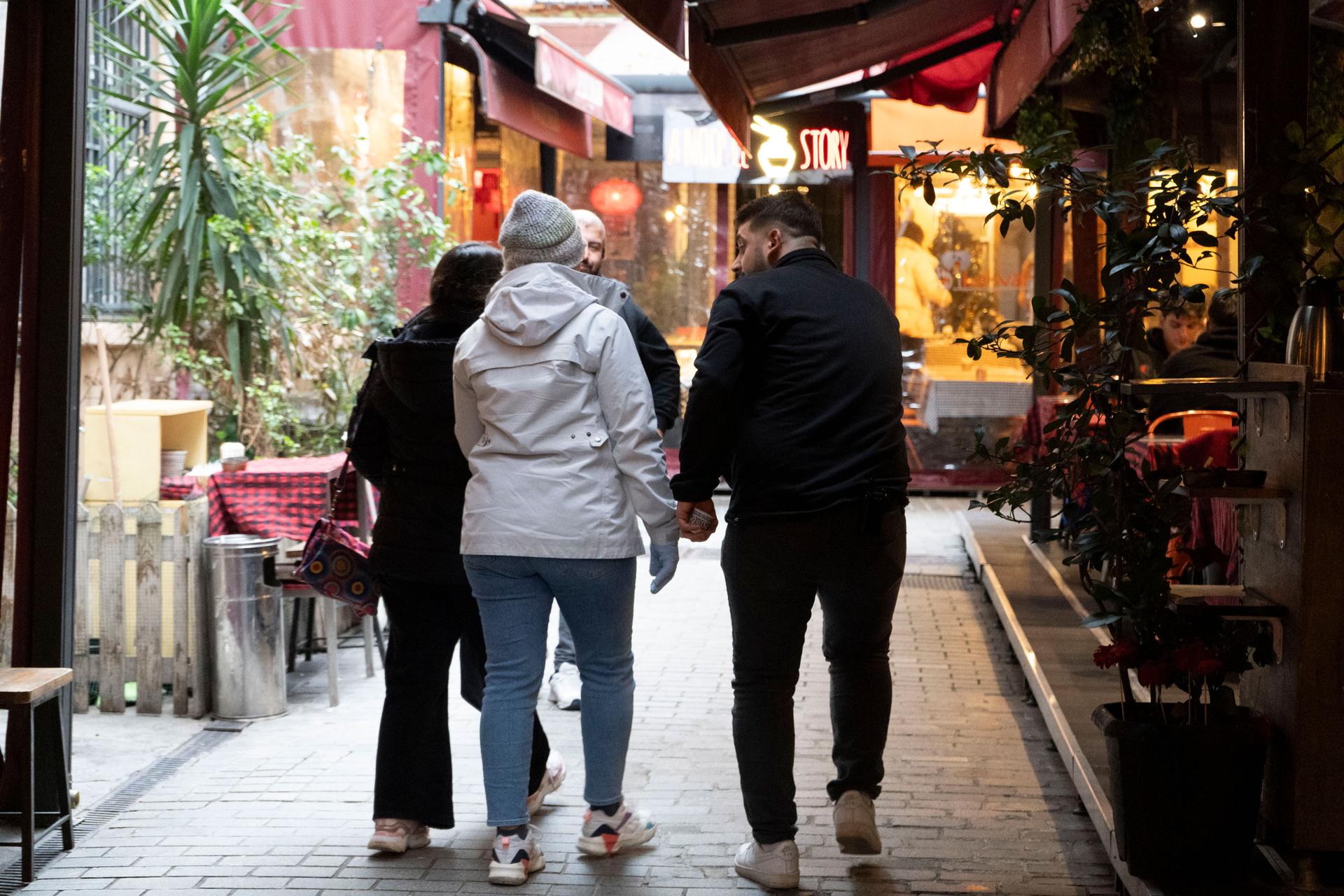
At Café Carmenta, servers say they set themselves apart with their “shows” — a boisterous presentation of their melted cheese dish, or a jovial fortune reading in the traces of coffee grounds left in a cup.
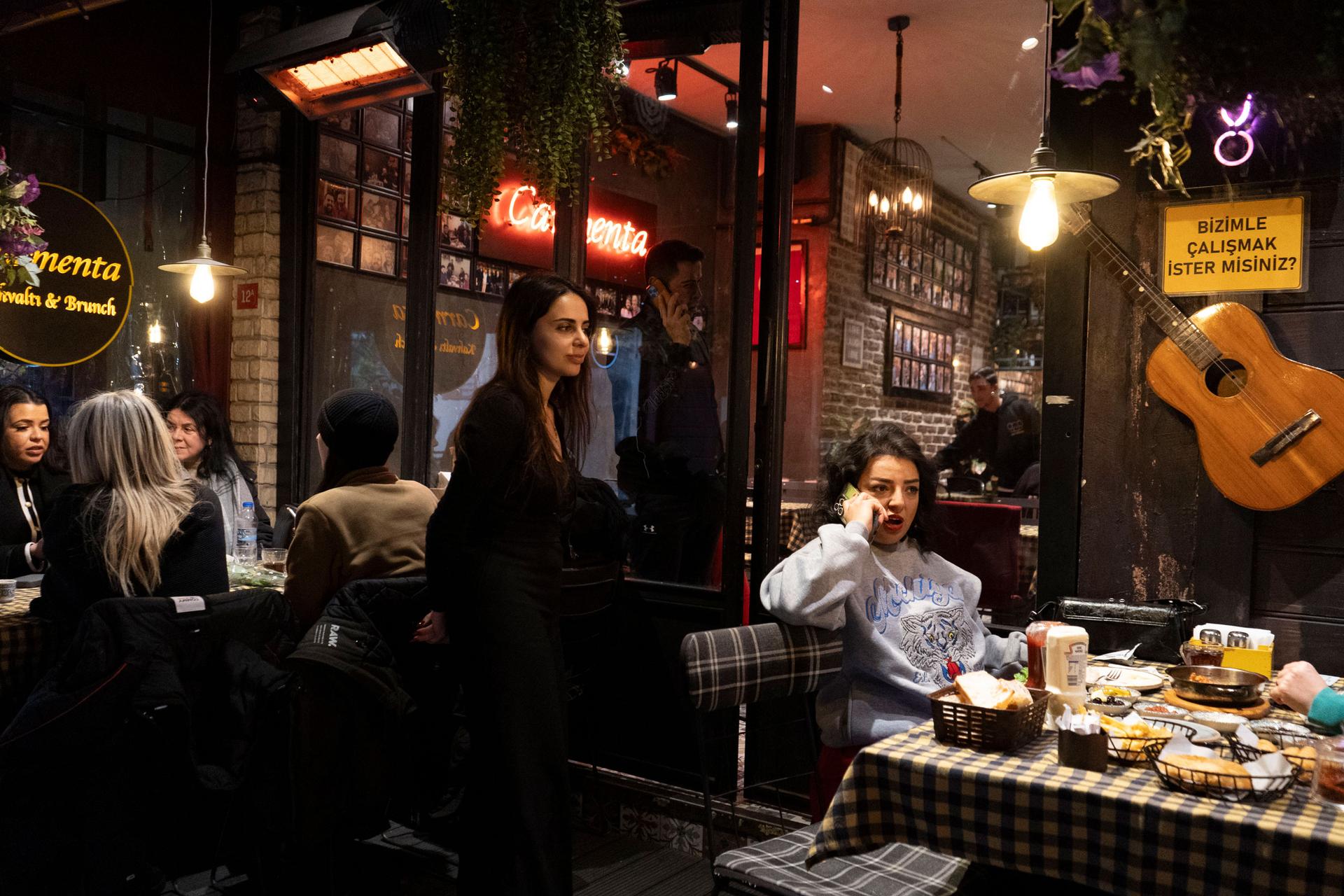
Okan Demirel, a psychology student celebrating the end of exams with friends, said the full Turkish breakfast is an easy way to get people together and talk. It’s also a long-held tradition.
“I remember being forcefully woken up by my parents for breakfast on Sunday mornings,” he joked. But now, he seeks it out.
Another diner, Bengin Tulum, said a restaurant breakfast brings those memories back: “It’s always part of a family and a house,” Tulum said. “It reminds me of home.”
